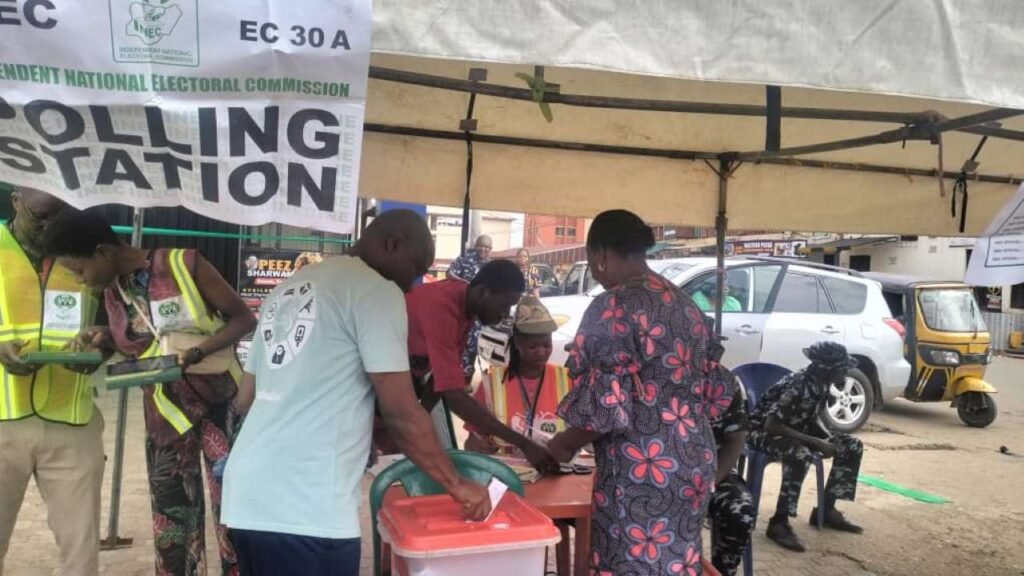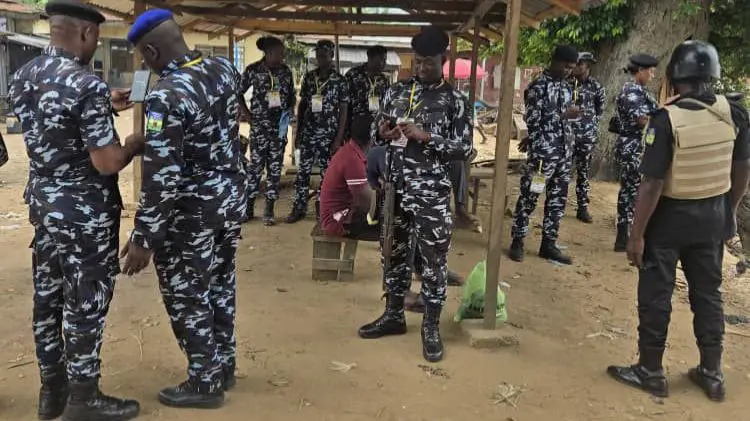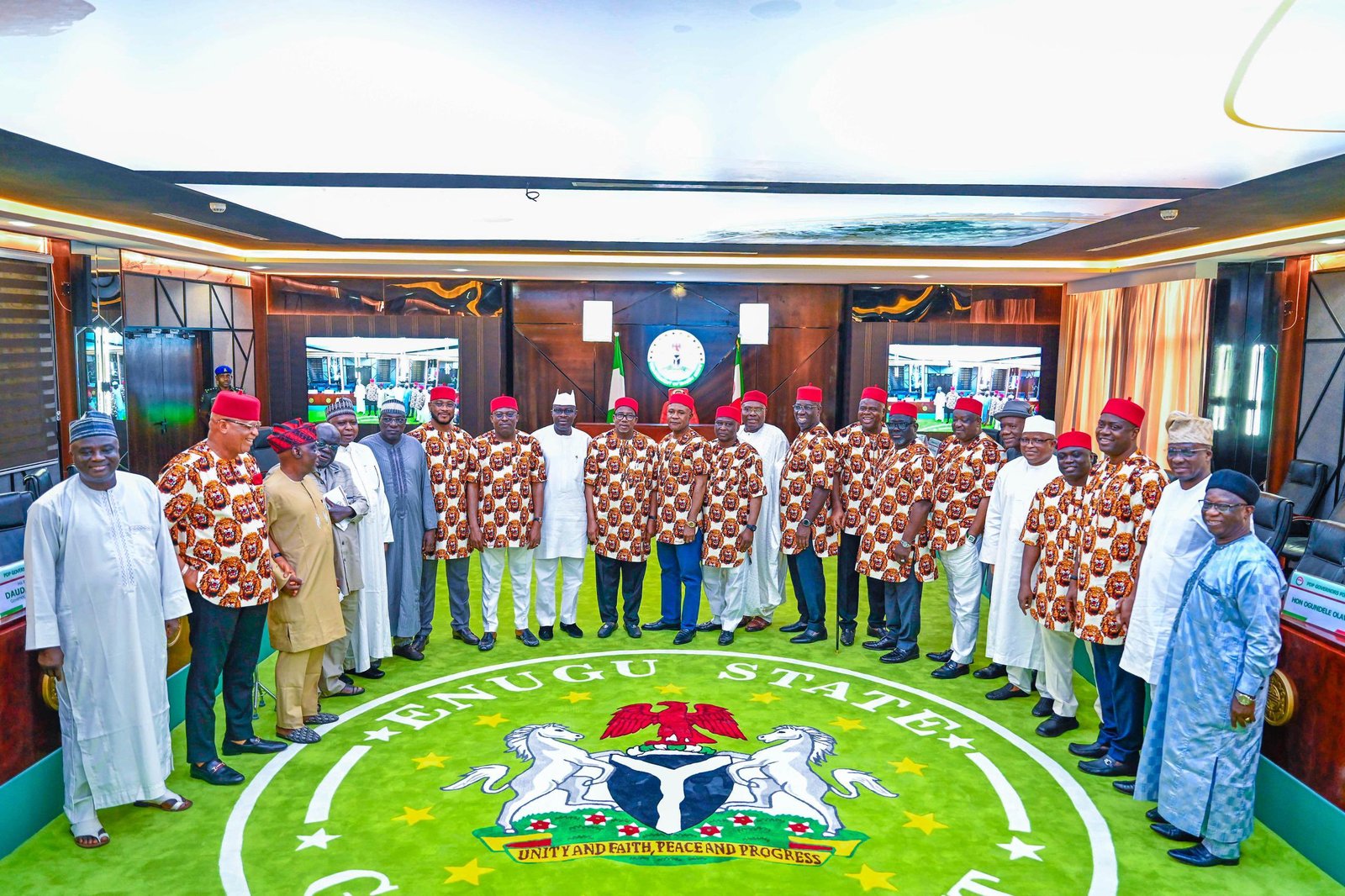The people of Anambra State are right now at the polling units to decide who will lead them for the next four years, in an election that testing their faith in Nigeria’s democratic process.
From Awka to Nnewi and Onitsha, streets fell silent under heavy security as the Independent National Electoral Commission (INEC) enforced movement restrictions.
Markets, bus parks, and streets that usually burst with sound were deserted. Only the hum of police patrols and the echo of voters’ footsteps broke the calm.
At Udeozo Primary School, Awka, voting began around 8:30 a.m. with only a handful of voters in sight. Some lounged beneath mango trees, waiting for accreditation, while others played football nearby — unmoved by the calls to vote.
“Our votes have not counted in the past, so what is the essence of voting today?” asked a young man named Sunday, voicing the quiet disillusionment that shadowed the election.
Tight Security and Early Hiccups
Security was unusually tight. Roadblocks were stationed across major entry points, following a midnight-to-6 p.m. restriction imposed by the Anambra State Police Command.
Tricycle riders and commercial drivers were warned to stay off the roads as armed officers patrolled the streets.
At Onitsha South, voting materials arrived late in many units, prompting frustration among early voters. Yet, officials managed to set up before noon, calming tensions.

Chika Ogbonnaya, a senior INEC official, confirmed that materials were fully distributed despite “logistical delays.”
The state police spokesperson, SP Tochukwu Ikenga, said aerial surveillance teams were deployed to detect irregular movements and ensure real-time coordination with ground officers.
“The Force remains neutral and committed to safeguarding the integrity of the ballot,” he assured.
The Candidates: Soludo’s Record Faces Test
Incumbent Governor Prof. Chukwuma Soludo of the All Progressives Grand Alliance (APGA) seeks a second term on the strength of his ongoing infrastructure and digital economy projects.
His administration has launched multiple community road initiatives, expanded youth innovation hubs, and championed local security under the Anambra State Vigilante Group.
However, critics accuse him of being disconnected from rural areas and failing to address persisting insecurity in parts of the state’s hinterlands.
For many voters, this election was as much a referendum on Soludo’s leadership as it was a test of the opposition’s unity.
Opposition Voices: Moghalu and Ukachukwu Challenge Status Quo
Among Soludo’s key challengers is Dr. George Moghalu of the Labour Party, who cast his vote in Uruagu, Nnewi North.
After voting, he told reporters in Pidgin: “Good voter turnout dey, but people no get confidence for the process. If you monetise poverty, wetin be free and fair election?”, referring to allegations of vote-buying by the state ruling party.
Moghalu, a long-time political figure and former managing director of the National Inland Waterways Authority, has campaigned on restoring public trust and ending what he calls “the politics of entitlement.”
He is heavily backed by former governor Peter Obi, who came third in 2023 presidential election, and who is expected to deliver his state to the party, to retain his political and electoral relevance at the national stage.
Obi spoke to journalists after voting on Saturday.
Prince Nicholas Ukachukwu, contesting under the federal ruling All Progressives Congress (APC), is another heavyweight in the race.
A businessman and philanthropist, he pledged to revive the state’s manufacturing capacity and make Anambra a hub for Southeast commerce. “We can industrialise our state if we think beyond politics,” he told supporters in Ihiala before the polls.
He is expected to bring his federal backing to bear in today’s race.
Also in the field is Dr. John Chuma Nwosu of the African Democratic Congress (ADC) and Chioma Ifemeludike of the African Action Congress (AAC), the only female contender, who has campaigned for youth inclusion and transparent governance.
The Voters: Stories of Hope and Frustration
While elite politicians debated the state’s future, ordinary citizens carried the weight of democracy on their backs.
In Agulu, 96-year-old Elizabeth Onike made the news, when officials denied her accreditation for not presenting her voter’s card. “I don’t know where it is. I cannot find it,” she said, tears in her eyes.




In contrast, 80-year-old Madam Ogochukwu from Nnewi South proudly showed off her ink-stained thumb, declaring she had been voting since 1963. “As long as I have breath, I will keep voting,” she said.
Such human stories, scattered across wards and polling units, revealed both the doggedness and resilience of Anambrarians to help chart the course for their state.
Observers and the Road Ahead
Election monitors from TAF Africa and other civil society groups expressed cautious optimism.
Founder Jake Epelle noted that the general atmosphere was calm, saying, “The people of Anambra are peace-loving. They are determined to protect their own.”
Still, concerns linger about low turnout and voter apathy. Out of the 2.8 million registered voters, less than 40% were expected to cast their ballots.
As at the time of this report, several hours away from closing of the polls, it might be tool early to prejudge the actual voter turnout. However, allegations of electoral fraud are flying around.
Nevertheless, for many, the result would not just determine Anambra’s next governor but signal how deeply Nigerians still believe that their votes count, and serve as a foretaste of what the almighty 2027 election holds.
Are you currently in Anambra State? Share with us the state of the electoral process from your own first hand experience.
Rate, Like 👍, Comment 💬, Share this article, Follow us on our social media handles, and Submit your own story to get featured and earn rewards!








